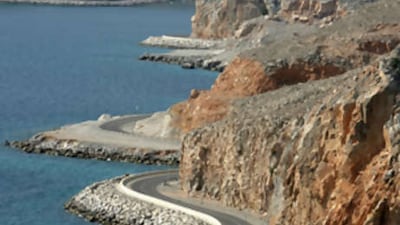Migrants attempting to enter the country illegally are targeting Ras al Khaimah as neighbouring emirates impose increasingly tough border controls and visitor numbers soar. Immigration authorities say they are training staff to deal with more illegal border crossings. Every week police and customs are arresting dozens of people who have either crossed the emirate's mountainous borders from Oman or are working illegally having already entered.
The number of passengers flying into RAK is expected to more than quadruple in the next five years and officials say this is likely to be accompanied by an increase in those seeking to enter illegally. Since Oct 15, the RAK Naturalisation and Residence Department reports, 83 people have been arrested for expired visa or illegal entry offences. Thirteen were caught in one day, officials said. New visa regulations have made it harder for illegal entry through Dubai and Abu Dhabi, but RAK appears a softer target.
Those who have entered illegally say they came for better economic prospects, travelling from Iran across the Strait of Hormuz and into Oman before heading across the mountains into the emirate. The Omani peninsula is dotted with fjords and jagged mountains and the coastline is full of hidden coves and steep cliffs, making it ideal for smugglers. But the trek over the mountains can be deadly for those who suffer injury or are unfamiliar with the route. Last month a man was found starving and dehydrated in the mountains after apparently trying to cross from Oman. "This is a new city, so many people are coming," said Col Sultan Yousef al Nuaimi, director of the Naturalisation and Residence Department. "Some people try two or three times," said Mohammed bin Hamadi, an investigation officer. "They have no education and they want to improve their lives. They come from the sea, through the mountains." Last month, police arrested three Bangladeshi men who allegedly tried to bribe an airport official to avoid iris scans. The men had previously been deported and banned for overstaying their visas. RAK airport officials said bribery cases were rare. But based on the experiences of other large entry points, they were preparing for an increase. "This is the first time because before we didn't have a lot of flights coming from Asian countries," said Major Marwan al Mansoori, from RAK police. "When we have a big city, you have to expect this and be ready." He added that security had been tightened at the airport, and a long-term border control strategy was in place that included extra training for staff. "We trust them, we train them," he said. "We have selected people very carefully." Attempts to bribe an official are punishable by imprisonment and deportation. People trying to infiltrate the country's borders face similar sanctions. The emirate is vigorously expanding its tourist infrastructure with the aim of dramatically increasing the number of visitors. It expects to welcome 2.5 million tourists a year by 2012 as it seeks to emulate the development of other areas in the country. A multi-billion dollar waterfront in Ras al Khaimah city, featuring 16 hotels, lagoons, theme parks and a shopping centre, has been proposed under the Government's Mina Arab project. In the 2008 Oxford Business Report onRAK, Sheikh Salem bin Sultan, chairman of the emirate's Department of Civil Aviation, said: "Within three to five years it is our aim to be handling approximately one million passengers per annum. We are currently handling approximately 245,000 passengers per year." Sheikh Salem estimated that RAK Airways, launched in 2007 and offering flights to Bangladesh and India, would double passenger capacity in its first year as they expand within the GCC and other Asian countries. Sheikh Saud bin Saqr , Ras al Khaimah Crown Prince and Deputy Ruler, has also told officials they desperately need to improve efforts to cope with the high number of visitors. azacharias@thenational.ae

